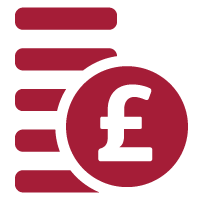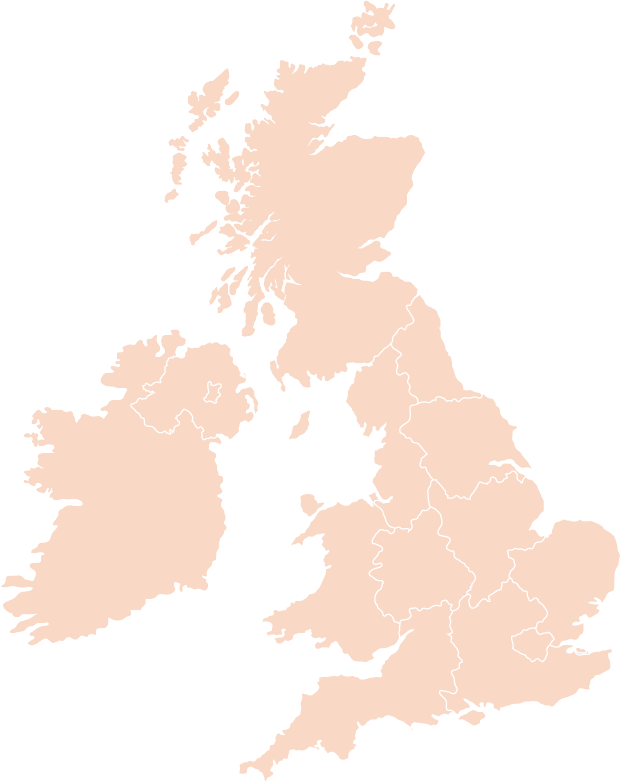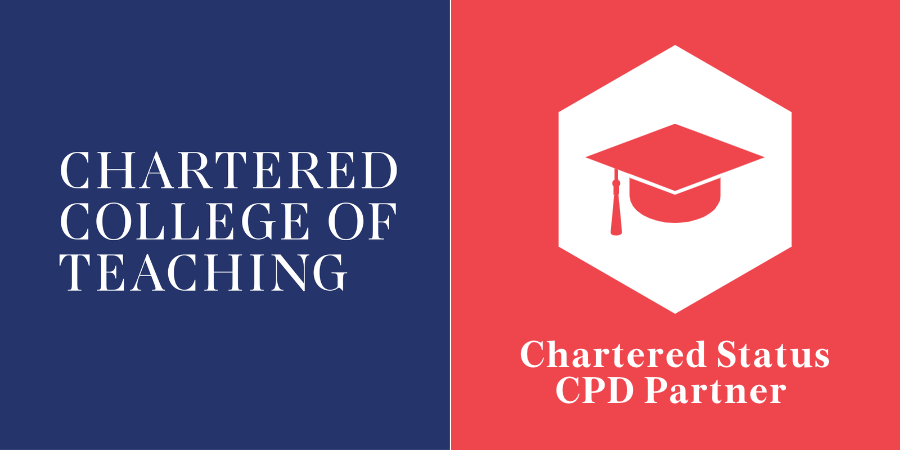Embedding Formative Assessment
We are delighted to announce that we have secured additional significantly subsidised places from the Education Endowment Foundation (EEF), through the DfE’s Accelerator Fund. As a result, we can now offer funding for our Embedding Formative Assessment (EFA) programme to 150 state funded schools with a secondary phase in England.
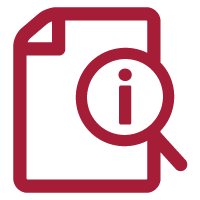
Application deadline Friday 26 April 2024
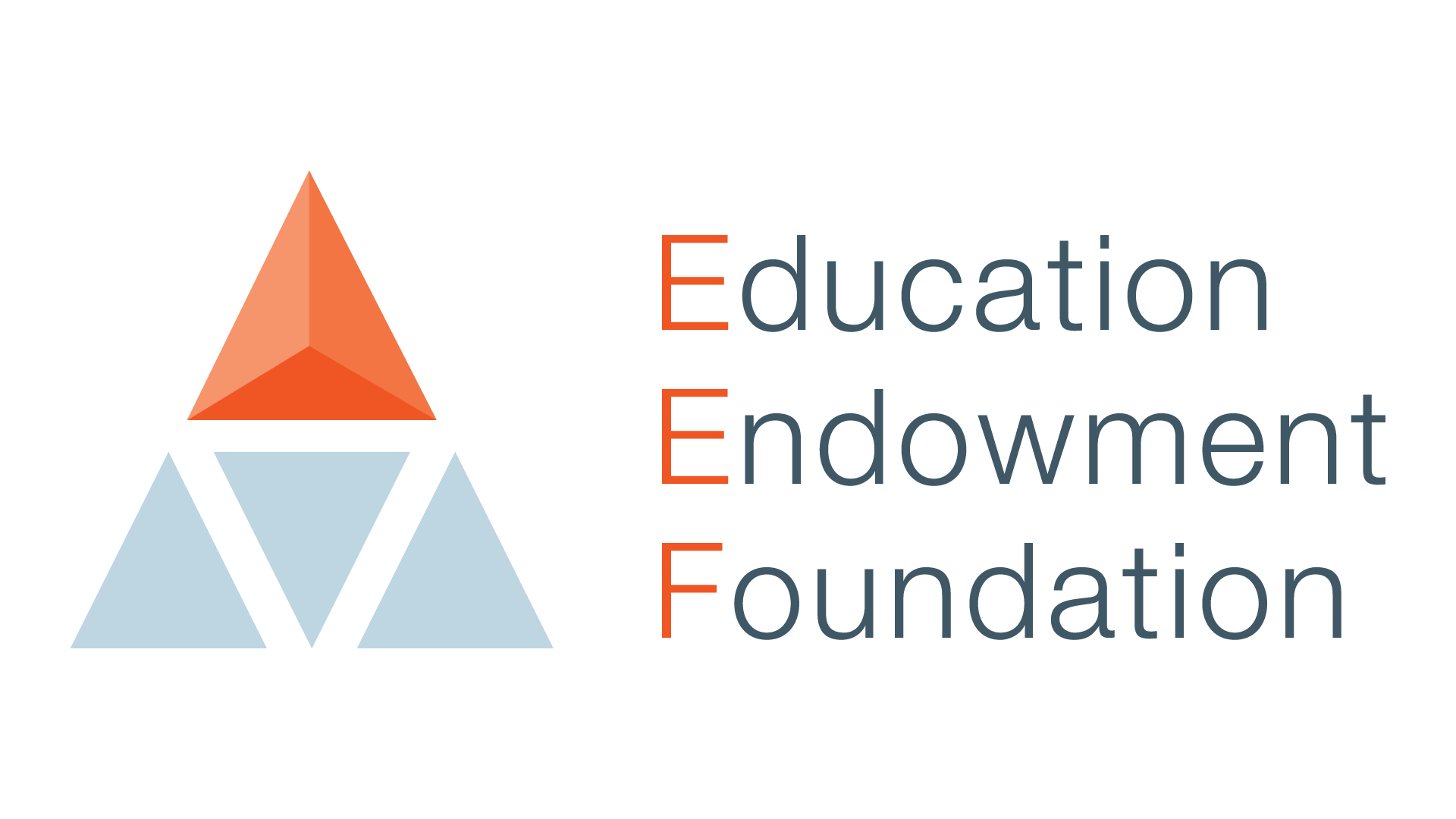
Embedding Formative Assessment is crucial for fostering a culture of continuous improvement in education. By incorporating formative assessment practices, educators can gain valuable insights into student learning, identify areas for improvement, and adapt teaching strategies to meet individual needs, ultimately enhancing student achievement and engagement.
Spend a day with Professor Dylan Wiliam the originator of the EFA programme.
Dylan will share his expertise and insight on why embedding formative assessment is the single most effective thing you can do to positively impact student outcomes. Together we will explore how you can communicate this message to your whole staff to ensure buy-in to the programme and look in depth at the model that is used to embed habit change.
Effective Formative Assessment

Click to zoom
- Boosts learner engagement through effective use of formative assessment techniques, fostering a supportive learning environment where students experience success and motivation increases.
- Enhances responsiveness in lessons across your school, empowering teachers to collect better evidence and improve learning every lesson.
- Achieves positive impacts on learner outcomes, as evidenced by the EEF’s report (Feb 2019) showing two additional months’ progress in GCSE Attainment 8 scores for learners in EFA schools.
Why implement the Embedding Formative Assessment Programme?
Building on over 20 years of research by Professor Dylan Wiliam and Siobhan Leahy, this programme has shown to make a positive impact on student achievement and teacher behaviours.
Through a full randomised control trial involving 140 schools, the Education Endowment Foundation found:
- Learners made the equivalent of two months’ additional progress in their Attainment 8 GCSE score.
- Learners in the lowest third for prior attainment made more progress than their classmates in the top third.
- Teachers felt the Teacher Learning Communities (TLCs) improved their practice by allowing valuable dialogue between teachers and encouraged.
Additional benefits of the programme include
- Improve teaching and learning across your school by empowering teachers to trial and refine formative assessment techniques.
- Enable learners to take responsibility for their own learning through peer and self-assessment techniques.
- Support your teachers in taking ownership over their learning by providing structured professional development and leadership opportunities.
- Build a stronger sense of community in schools with teachers and learners collaborating with each other to achieve common goals.
Join a free EFA briefing to find out more about the programme
In these free briefings, Corinne Settle, Senior Education Lead and Programme Leader will be presenting how EFA can positively impact on your students, teachers and school culture. Corinne will give an overview of the programme and take questions.
Find out more
How does the EFA programme work?
The EFA programme, based on extensive research by Professor Dylan Wiliam and Siobhan Leahy, focuses on long-term habit change to improve formative assessment practice among teachers. This two-year whole-school programme, fully supported and resourced, comprises Teacher Learning Communities (TLCs) with meetings held every four weeks, facilitated by a selected TLC leader. An expert EFA mentor provides tailored support to ensure effective implementation and sustainable impact for the school.
This support will include:
- Practical planning support for readiness.
- An initial day’s training in-school for school leaders and teachers leading the TLC meetings.
- Regular email/telephone contact with an assigned mentor with key reflection and planning points.
- Two in-person visits at the end of year one and two to review the programme and plan the next steps in implementation.
- A wide breadth of supporting resources, exemplars and case studies which can be used to support and maximise the impact of the programme.
You will need to:
- Commit to the programme for two-years with an understanding that teacher habit change takes time.
- Free up time and resources to implement the programme with fidelity.
- Treat implementation of the programme as a process, planning and executing it in stages working with your mentor.
Application criteria for 150 schools
- State funded schools with a secondary phase located in England.
- Schools must contribute a nominal fee of £1,468.75 + VAT (see FAQ on VAT) at the start of the programme as part of their commitment and investment to the two-year programme.
- No less than 50% of successful schools need to be located in one of the 55 Education Investment Areas (EIA). And, no less that 60% of schools need to have above average (24%+) levels of PP children at the school. If applications exceed demand, applications from schools that meet this criteria will be prioritised.
How to Apply

Step 1
Complete the application form

Step 2
You will receive a link via email to book an interview to approve your application
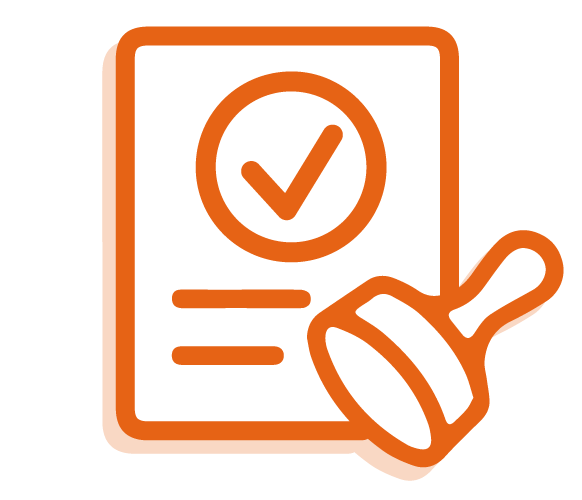
Step 3
Following a successful interview, your commitment will be confirmed by signing an MOU and payment
Book a call with Corinne Settle, Senior Education Lead
Speak with Corinne Settle to learn more about the benefits of Embedding Formative Assessment in your school.
Book call
Visit an EFA Ambassador School
We are delighted to offer you the opportunity of visiting an EFA Ambassador School to see the impact that the Embedding Formative Assessment programme is having on their school. These open days will allow you to hear from the school’s leadership team, teachers and students to gain a better understanding of how the programme works, how it has benefitted the whole school, and get answers to any questions you have about the programme.
St John Fisher Catholic High School, Peterborough
Thursday 14 March 2024
Hunter’s Bar Junior School, Sheffield
Friday 19 April 2024
Finham Park School, Coventry
Thursday 25 April 2024
Date and location
In-person training and online support. The first training session will be held face to face.
Glossary
EFA – Embedding Formative Assessment
EFA resource/pack – the digital resources for the programme i.e. handbook, agendas, worksheets and recordings
TLC – Teacher Learning Community, the workshop groups teachers are placed in
TLC Leader – the selected teacher(s) who facilitate the workshops
EFA School Lead – the school leader who is responsible for the strategic implementation of the programme
Frequently Asked Questions
How is VAT calculated?
| Cost Excl VAT | VAT | Cost incl VAT | |
|---|---|---|---|
| EFA Programme | £5,875.00 | £1,175.00 | £7,050.00 |
| EEF Funding | -£4,406.25 | - | -£4,406.25 |
| Net Price | £1,468.75 | £1,175.00 | £2,643.75 |
The school is liable for the full VAT of £1,175.00. If registered for VAT this will be reclaimable through the normal VAT process for a net cost of £1,468.75
Can I apply on behalf of my Trust?
Yes, however you will need to complete one application form per eligible school within your Trust. Each school application will be classed as one place on the programme. You can then book one application interview and ask the Heads of School to join if you wish. Once each programme place is confirmed, we are able to invoice the Trust for all your schools if this is preferable.
When can I book an application interview?
After you have completed the application form, you will receive an email with a link to book an interview for the approval of your application. You have two weeks to schedule your interview once you receive the link (note that the interview itself doesn’t have to take place within this timeframe). Due to high levels of interest in this initiative, if you haven’t scheduled your application interview after two weeks, your school’s application will unfortunately be withdrawn and the opportunity given to the next school.
What is the research evidence for the impact of the programme?
An Education Endowment Foundation randomised control trial with 25,000 pupils in 140 schools across England found:
- learners made the equivalent of two months’ additional progress in their Attainment 8 GCSE score
- learners in the lowest third for prior attainment made more progress than their classmates in the top third
- teachers felt the Teacher Learning Communities (TLCs) improved their practice by allowing valuable dialogue between teachers and encouraged experimentation with formative assessment strategies
What is the time commitment for the programme?
The programme lasts two years from your starting point. In each year there will be 9 workshops. 75 minutes must be allowed for each workshop. Time must be planned between workshops to enable teachers to work collaboratively and give feedback on techniques observed in lessons.
Why is the programme two years?
Teacher change takes time. The programme focuses on teachers being given choice, flexibility, small steps, accountability and support to effect long-term habit change. Initially, schools reported an increased prevalence of formative assessment techniques and improved student engagement, but effectiveness and impact on student outcomes is a longer term goal. One year, simply isn’t enough.
Who needs to be involved?
This is a whole-school programme. All teachers should be a member of a TLC group.
What topic areas that will be covered over the two years in the TLCs?
Over the two years, Dylan Wiliams’ five strategies for formative assessment will be covered. These include:
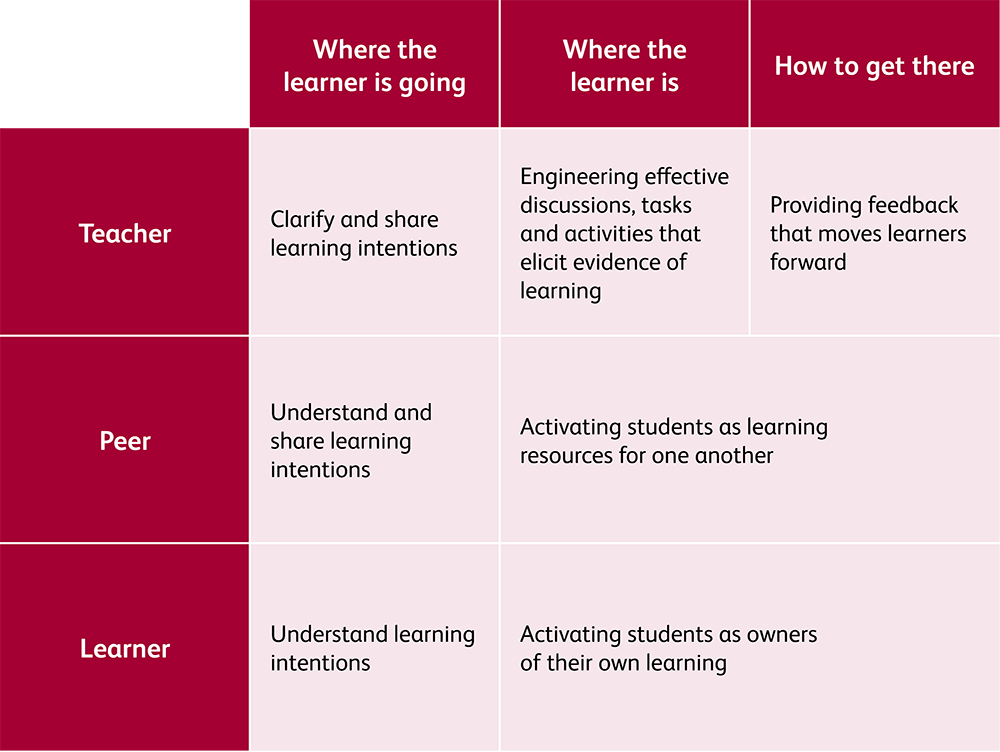
What support and training is provided?
Each school will have an expert EFA mentor who will work with you for two years. This support includes:
- Practical planning support for readiness
- An initial day’s training in-school or online for school leaders and pre-selected TLC Leaders. Note, this is not an all staff training day
- Regular email/telephone contact with your mentor with key reflection and planning points
- Two face to face visits at the end of year one and two to review the programme and plan the next steps in implementation
- A wide breadth of additional supporting resources, exemplars and case studies which can be used to support and maximise the impact of the programme
When do we need to start the programme?
Your school may start the programme at any point in the academic year 2023/24 or before the end of the first Autumn half-term 2024. Initial conversations with your EFA mentor can start immediately after you have signed up for the programme. If planning to start the programme in Autumn 2024 we recommend that the initial training takes place in the summer term. You are then fully prepared to successfully launch the programme with your staff in the Autumn term.
How many teachers should be in each TLC?
We would advise a group size of around 10, groups may need to be as low as 8 or as high as 14 depending on school circumstances.
Can learning support staff be part of TLC groups?
Yes. Many schools involve support staff in the programme. These staff can either form part of the TLC groups with teachers where you feel they would be comfortable and confident to share their practice. Another option is to form a TLC of only these staff to allow discussions to become more focused on their role.
Will all TLCs in a school work on the same topic at the same time?
Yes, it is integral to the success of the programme that they follow the agendas provided. Some adaptations may be made, but these must be discussed with your EFA mentor to prevent lethal mutations of the programme. However, teachers have choice as to what formative assessment technique they wish to work on in their own classrooms to develop their practice.
How should I choose my TLC workshop leaders?
TLC Leaders should be voluntary and ideally not members of the senior leadership team. Their role is to facilitate the sessions. They are not expected to be experts in formative assessment and may be at any point in their career. They will lead and participate in all of the TLC activities.
Can the materials/agendas be changed?
Through the EEF research trial we have identified where minor adaptations to the programme can be made to ensure that messages shared are aligned with school policies, practice and ethos. Your EFA mentors will be able to give detailed guidance on this.
What monitoring will be required both internally and externally?
Internal monitoring and evaluation of the programme will be supported by your EFA mentor and is an essential element of the implementation of the programme. This would form part of your usual monitoring of T&L. The resource contains pro-formas for peer observations and learning walks. Externally, the evaluation team may ask you to complete student/teacher surveys or also be part of group interviews. These will be done at a time convenient to you.
What about part time staff?
This will always be a challenge in schools. Where possible, all staff should attend all meetings. However, this isn’t always possible so we recommend giving staff who can’t attend sessions a ‘buddy’ from the group that can support them in sharing discussions and learning. Recordings from the sessions are also available on the final handout so these can be watched at anytime.
What if a TLC Leader is absent for one or more of the workshops?
This will happen over the course of the programme. We recommend that every TLC group has two TLC Leaders, either as co-leaders, or with a deputy lead.
What is the difference between formative assessment strategies and techniques?
The five key strategies of formative assessment are identified in the table above. The techniques that can be used to enact these strategies in the classroom are, for example; no hands up, exit tickets etc.
EFA Initial Training Evaluations Summary 2022-23
![]()
Based on over 1300 survey responses.
Over 96% of respondents found the initial EFA training to be very or extremely high quality.
SSAT is now partners with the Chartered College of Teaching
Those who complete the EFA programme will be able to apply for an exemption from the Development of Teaching Practice Award for teachers (20 credits).
Formative assessment: the most cost effective way to improve education
Dylan Wiliam, emeritus professor of educational assessment at UCL, explains the evidence for the cost-effectiveness of formative assessment.

Any questions?
Contact us or call 020 7802 2300.
Get in touch



